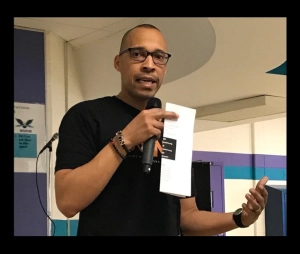
Creating a “Farm” System for Teachers of Color: Grow Your Own Program
April 6, 2019
Room 229: Intro to Trauma Sensitive Pedagogy
October 22, 2019As educators, we approach every school year with the desire to be our very best. When thinking of our profession, we understand that it is never static and there are new experiences preparing to greet us daily. As a new member of the Equity Initiatives Unit, I’m entering this school year with the same enthusiasm that I had while a counselor at Montgomery Blair High School. Although I will miss regularly seeing 3000 plus students, working in equity with the task of sharing this important work with others is equally exciting, dynamic, and rewarding. The quest for continual improvement in philosophy and practice around cultural awareness, human engagement, and most importantly, their impact on student’s social emotional learning is still at the forefront of my work.
This feeling of ambitious optimism reminds me of many conversations that I have had about growth mindsets. Just as we encourage students to have a growth mindset, what if educators headed into the year with an Equity Mindset? I use this parallel because we love students who have a growth mindset. We appreciate those who are able to see failure as an opportunity to learn and develop new ways of doing things. In our eyes, these risk takers are all about growth and are the opposite of fixed mindset types that measure success by someone else’s standards or give up when they encounter obstacles or resistance. Just as we desire our students to constantly seek learning and development, I encourage us all to begin/continue a growth mindset around equity.
In its simplest form, equity is about fairness and is a practice where everyone’s contributions matter. We must engage our equity mindset when there are opportunities to counter and interrupt the bias that we all deal with. We must consider our equity journey as we explore new ways to be welcoming and innovative in the spaces where we work with students and families. We must also reflect on equity and stand courageous in disrupting institutional and curricular practices that don’t allow us to operate outside the status quo or bring in student voice and cultural experiences.
I once heard someone say that education is a revolutionary act. I tend to agree. In order for us to help students to be the best, healthiest, and most curious critical thinkers they can be, our practice has to be equity centered and forward leaning. In the long run, our society will be better as a result of our individual equity journeys.





